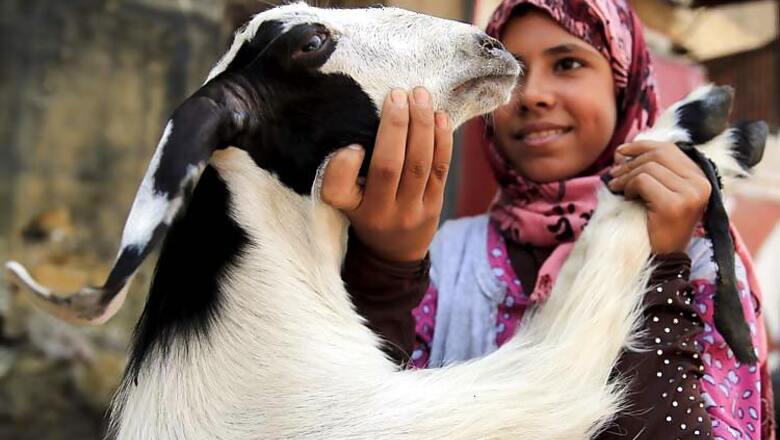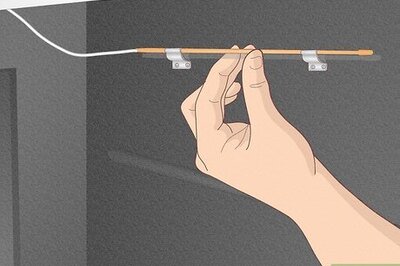
views
New Delhi: Online shopping is not just for clothes, shoes and gizmos. With Id-ul-Zuha or Bakr Eid round the corner, India’s Muslim community is using social networking, online marketing and e-commerce sites to buy and sell (sacrificial) goats. While online retailing of goats started a year or two ago, it has picked up significantly this year.
The Muslim community will celebrate Eid-ul-Zuha on September 25. On that day, sacrifice of a small or large animal is performed as per the financial capability of the person making the offering. Earlier, these animals were sold in open markets, but the trends have changed and now the sacrificial animals are available for online purchase on websites like OLX and Quikr.
From "beautiful and very honest" goats to those fed with "100 per cent organic grass", the devout are spoilt for choice. Hundreds of classified advertisements have been posted online with photos of the breeds and details such as age, weight, height and the vaccination and deworming status.
While some traders ask buyers to "check" the animal, others have offered discounts and free home delivery - if the goats are booked before a certain date.
Shameem Ahmad from Muradabad in Uttar Pradesh has nine goats, including the much sought after Kotha and Etawa breeds. Ahmad said he posted an online ad after he saw similar ones last year.
"I liked the idea. The exotic breeds cost anywhere between Rs. 1 lakh and Rs. 5 lakh, so we can't keep them in the disease-prone Deonar abattoir in Mumbai (India's largest such), where hundreds of animals die of illness," Ahmad, adding that the date of the festival shifts ahead by about 10 days every year, bringing it closer to the retreating monsoon, told IANS.
"Many animals fall prey to rain related diseases at the abattoir."
A goat trader in Delhi's Jama Masjid area, who chose to be identified only as Munna, said he took to the virtual market as it does away with the middleman.
"The deal is going to be hassle-free. Buyers are more specific as they will travel to the trader. There is also less bargaining involved," Munna said.
About 300,000 goats are brought to Mumbai's Deonar abattoir for the festival every year, from states such as Rajasthan and Uttar Pradesh, said Aslam Qureshi, president of the All India Sheep and Goat Breeders and Dealers Association.
"Right from the rise in transportation costs to upkeep of the goats (they are fed pulses, gram, wheat and maize corn) before they are sold, trading in them is no longer profitable," he said.
"But traders have started selling goats through their farms as the abattoir is in poor condition. It's difficult to say when, but the e-market for goats is set to get a boost soon," Qureshi said.
Although just about 2,000 goats are up for sale online, traders said the trend will pick up in a big way in the next few years.
Interestingly, Quickr and OLX are perhaps only the tip of the iceberg. A website called GoatIndia.com is reportedly one of the most popular locations online to buy and sell goats.
This online option has however created a new debate in the religious circles of the Muslim community, where some scholars claim that unless the sacrificial animal is observed minutely to preclude any health issues that make its sacrifice vain, the purchase of such an animal is against the ethics of Islam.
They claim that it was impossible to check the animal for all these defects by just looking at its picture on the phone or on a computer screen.
There are several levels of checks that are conducted on an animal before it is purchased for sacrifice, but in online sales, all these things cannot be taken into consideration.
The Mufti Madni of the Jamiat Ahle Hadith-e-Hind has declared such online sales and purchases of animals as valid, claiming that the times are changing and Muslims too should be ready to embrace the change.
He also said that the young Muslims are increasingly becoming net-savvy and in view of the increasing penetration of the internet in our day-to-day lives, it was not at all unusual if sacrificial animals have also started selling online.




















Comments
0 comment